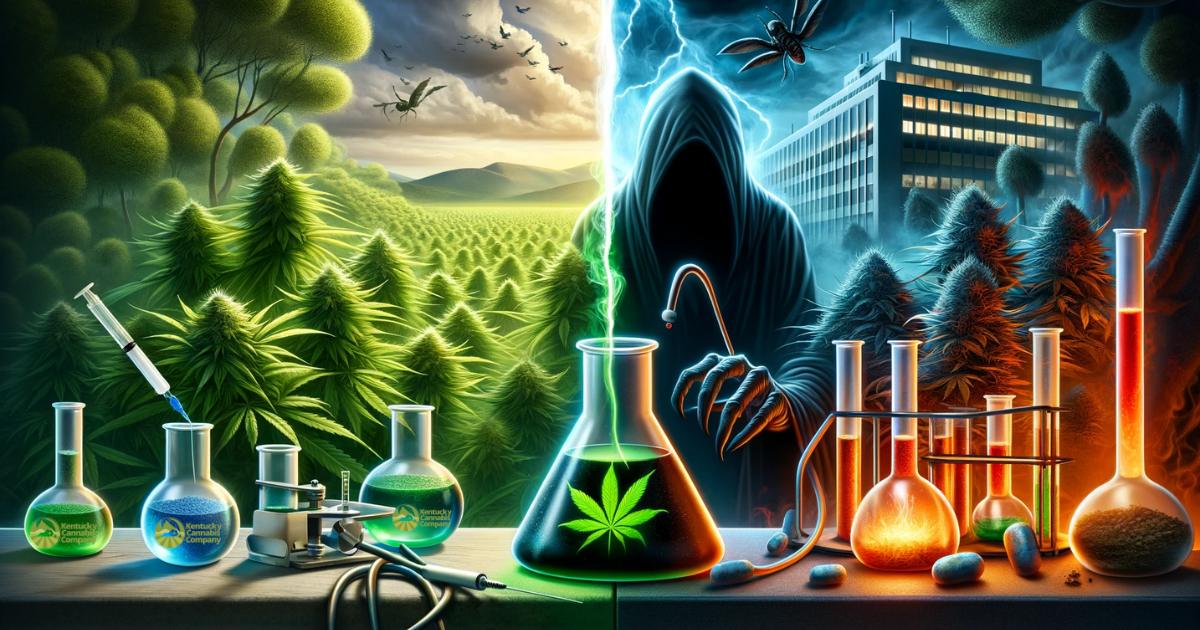
Synthetic Cannabinoids from Isolated CBD: A Comprehensive Review
Introduction
In recent years, synthetic cannabinoids like delta-8 and delta-9 THC, derived from isolated CBD, have gained popularity. Marketed for their supposed health benefits, these substances are far from safe. This article delves into the significant risks these synthetic cannabinoids pose, not only to individual health and public safety but also to the integrity of the hemp industry.
Understanding Synthetic Cannabinoids
Synthetic cannabinoids, such as delta-8 and delta-9 THC, are artificially derived from isolated CBD. Unlike naturally occurring cannabinoids, these synthetics are produced through chemical processes that can introduce hazardous by-products. Despite imitating the effects of traditional cannabinoids, their unverified safety and efficacy present considerable legal and health concerns.
Delta-8 THC: Understanding Its Effects and Uses
Virginia’s Regulatory Response
Virginia’s strict new hemp regulations, including the prohibition of delta-8 THC products, reflect growing apprehensions about synthetic cannabinoids. Despite opposition from hemp businesses, these regulations have been upheld, demonstrating Virginia’s commitment to public health and its stance against the unregulated market of these potentially dangerous compounds.
Nebraska’s Legal Actions
Nebraska has followed suit, taking legal action against delta-8 THC products. The state’s attorney general has sued retailers for selling these risky products, particularly to minors, signaling an increased effort to mitigate the dangers associated with synthetic cannabinoids.
Alaska’s Hemp Regulation Challenges
Alaska faces legal challenges in its attempt to regulate hemp-derived products, particularly those containing intoxicating levels of delta-8 and delta-9 THC. Hemp cultivators have filed lawsuits against these new regulations, which they claim could illegitimize all hemp-derived products.
Rethinking Hemp Regulations: Bridging the Gap Between Policy and Agricultural Realities
The Health Risks of Synthetic Cannabinoids
The health hazards linked to synthetic cannabinoids are distressing. Numerous hospitalizations and emergency incidents, mainly due to adverse cardiovascular reactions, highlight the severe risks. Cases have included severe illnesses and fatalities, underscoring the grave nature of these substances.
Tragic Case of a Child’s Death
The dangers of synthetic cannabinoids were tragically underscored by the death of a four-year-old Virginia boy due to the ingestion of delta-8 THC gummies. This incident, which has caused widespread media attention and backlash against the CBD sector, highlights the severe risks these substances pose, especially to children. The lack of regulation around delta-8 products, their unapproved status for human consumption, and their appeal to children have been significant concerns raised by the FDA.
The Impact on the Hemp Industry
The rise of synthetic cannabinoids has drastically altered the hemp industry. Initially intended for producing beneficial CBD products, hemp is now increasingly used for synthetic cannabinoid production. This shift has not only compromised the industry’s focus but also diverted resources from producing genuinely beneficial hemp products.
A List of Illegal Synthetic Cannabinoids
Awareness of illegal synthetic cannabinoids is vital for public health. Substances like HU-210, JWH-018, and AM-2201 have been banned due to their harmful effects, highlighting the need for vigilance against these dangerous compounds. Synthetic cannabinoids made from hemp need to be added to the list.
Natural Cannabis: A Safer Alternative
Natural cannabis stands in stark contrast to its synthetic counterparts, offering a safer profile with no direct deaths linked to its use. This distinction emphasizes the inherent dangers of synthetic cannabinoids and the necessity for caution.
Advocacy for Synthetic Cannabinoids: A Misguided Approach
Advocates of synthetic delta-8 and delta-9 THC often tout their benefits for conditions like anxiety, pain, and sleep disorders. However, increasing reports of adverse effects such as anxiety, paranoia, and heart palpitations, coupled with research showing that THC can disrupt restful sleep by hindering REM sleep, suggest that the promotion of these synthetics is driven more by financial incentives than public welfare.
Conclusion: A Call for Ethical Responsibility
The evidence is irrefutable: synthetic cannabinoids, made from isolated CBD, pose grave risks to health and have led to numerous hospitalizations and even deaths, including the heartbreaking case of a young child. Their misleading marketing and lack of regulation only heighten these dangers. The legalization of hemp production in 2014 was meant to harness CBD’s benefits, particularly for children. The emergence of these synthetic products is a perverse deviation from this goal, and those responsible for their production can only be seen as exploiting a vulnerable market. States banning these substances are making a prudent decision. Advocates for natural cannabis and hemp should firmly distance themselves from these hazardous synthetics, focusing instead on the natural benefits of cannabis for humans and animals, rather than the dangerous and unethical market of synthetic cannabinoids.


Recent Comments